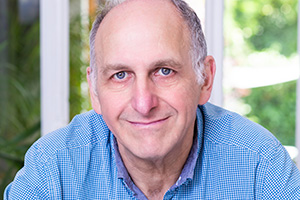The fastest way to make a living writing comedy

What do top comedy writers Tony Roche (Veep, Succession), Mark Burton (Madagascar, Wallace & Gromit: The Curse Of The Were-Rabbit) and Simon Blackwell (Back, The Thick Of It, The Personal History Of David Copperfield) have in common?
They all began their careers writing one-line jokes for topical radio shows.
I've just finished running a fortnight of daily emails for everything you need to know about becoming a topical comedy writer. (You can pick up those emails for free here davec@bindman.net)
During that run, BBC Radio announced the end of Newsjack. They've been quietly sweeping the show under the carpet for a while now. Last season it dropped from six to four episodes. Then finally it disappeared, tied in with an announcement that something new will take its place next year.
But not to worry, elsewhere a great bunch of opportunities have opened for new writers in the last year. Breaking The News, BBC Scotland's topical show that runs for 30 weeks a year is now open for material from writers with no previous credits.
And fabulous, multi-award winning The Skewer will be on Radio 4 for at least 15 weeks a year. Here's what producer, creator and all-round topical comedy genius Jon Holmes has to say:
"Nothing has made me prouder than being able to bring new writers into comedy."

Writing for The Skewer isn't easy, it requires specific skills, lots of hard work and a commitment that effectively tells you to wave goodbye to your weekends. But then, Newsjack was also a show that required hours of weekend thinking and writing.
And here's more good news, Breaking The News doesn't interfere with your weekend. On Tuesday morning they send out a brief with the subjects that are going to be included in that week's show, and the deadline for returning them is noon on Wednesday. You can send up to 36 jokes.
Dan Sweryt has become a regular contributor to both shows. When he first heard The Skewer he couldn't imagine he could write for it, but, he says "You can! Also it's multiple award-winning and who doesn't want to write for a multiple award-winning show?"
Not everyone can write topical comedy, but if you can, you'll quickly be in demand from producers and performers. Dan and I firmly believe that with persistence and guidance you could do it.

We'll be running a course that covers six weeks of Breaking The News, which returns in early October and four weeks of The Skewer. That's ten shows with the prospect of your first professional comedy writing credits.
Send us your jokes and ideas in time and we'll give you instant feedback with recommendations for what you should send off.
And we'll be there for the most important task, which is to keep your spirits up through weeks of potential rejection. Seriously, this is what writing topical comedy is all about - writing and being rejected, week in week out, until eventually you work out how to do it.
You can find out all the details here: Course information
You might want to sign up with another writer. Dan is a big fan of working with others, holding one another to account. Signing up for this course with a partner will both halve your cost of joining the course and double your chances of getting jokes on shows.
It will also halve your fee if you get a joke on, but at this stage in your career a comedy writing credit on an award-winning radio show has got to be worth something!
This article is provided for free as part of BCG Pro.
Subscribe now for exclusive features, insight, learning materials, opportunities and other services for comedy creators.


